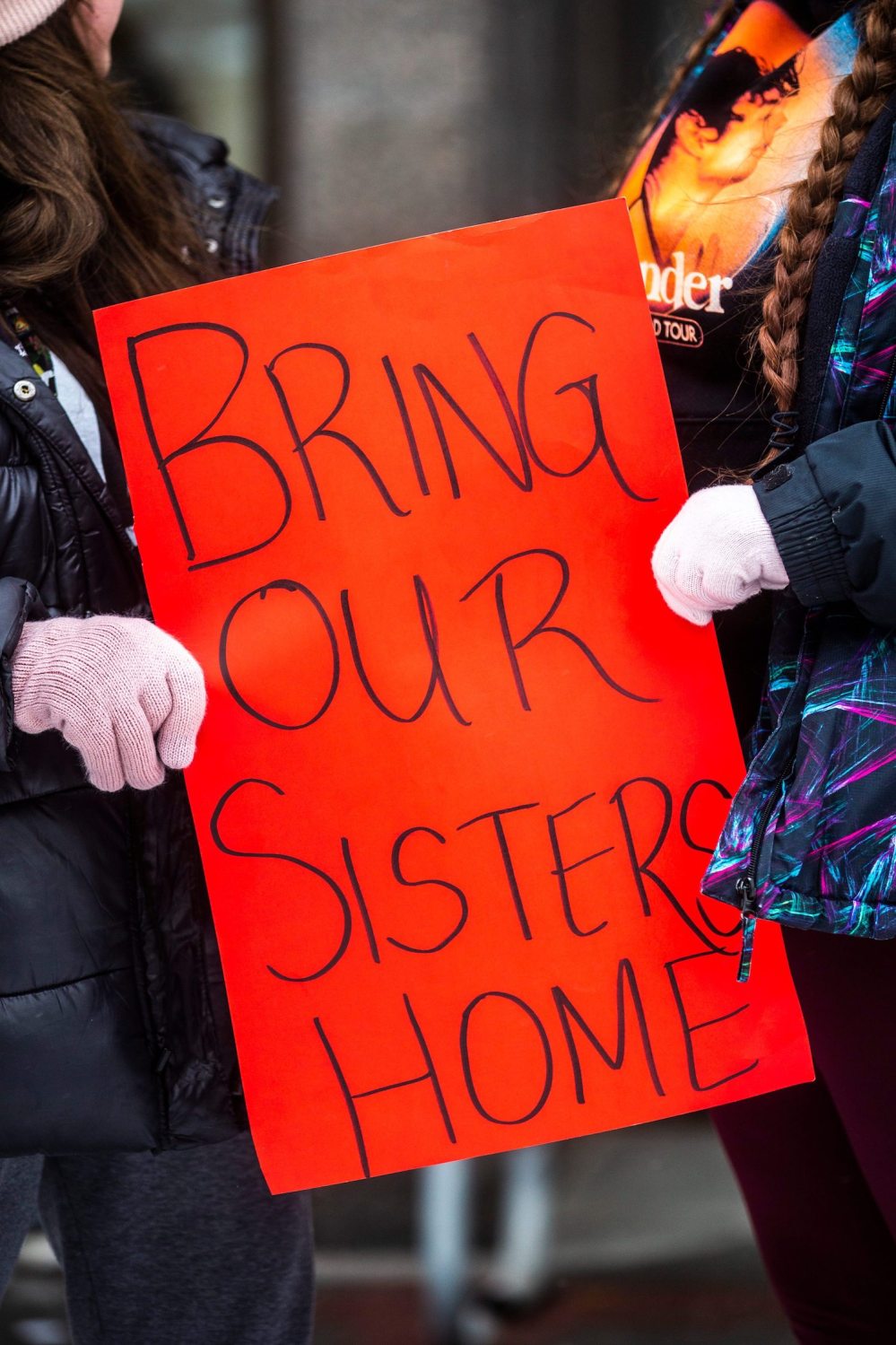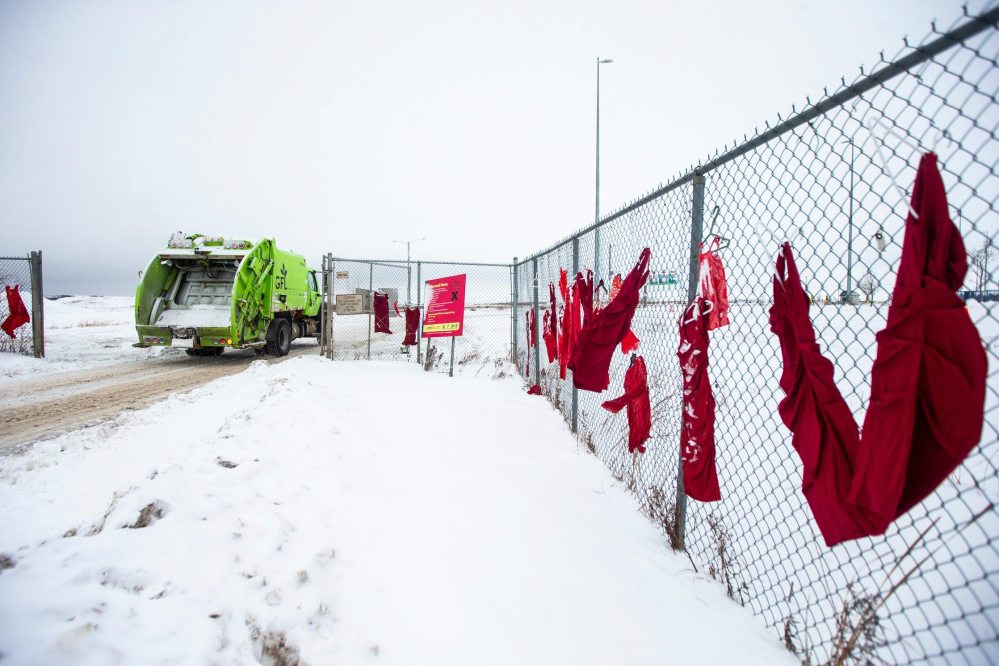Ottawa to fund study of landfill search for victims’ remains
Advertisement
Read this article for free:
or
Already have an account? Log in here »
To continue reading, please subscribe:
Monthly Digital Subscription
$0 for the first 4 weeks*
- Enjoy unlimited reading on winnipegfreepress.com
- Read the E-Edition, our digital replica newspaper
- Access News Break, our award-winning app
- Play interactive puzzles
*No charge for 4 weeks then price increases to the regular rate of $19.00 plus GST every four weeks. Offer available to new and qualified returning subscribers only. Cancel any time.
Monthly Digital Subscription
$4.75/week*
- Enjoy unlimited reading on winnipegfreepress.com
- Read the E-Edition, our digital replica newspaper
- Access News Break, our award-winning app
- Play interactive puzzles
*Billed as $19 plus GST every four weeks. Cancel any time.
To continue reading, please subscribe:
Add Free Press access to your Brandon Sun subscription for only an additional
$1 for the first 4 weeks*
*Your next subscription payment will increase by $1.00 and you will be charged $16.99 plus GST for four weeks. After four weeks, your payment will increase to $23.99 plus GST every four weeks.
Read unlimited articles for free today:
or
Already have an account? Log in here »
Hey there, time traveller!
This article was published 15/12/2022 (1088 days ago), so information in it may no longer be current.
The federal government says it will pay for a feasibility study to search a landfill north of Winnipeg where the remains of two women, believed to have been slain by alleged serial killer Jeremy Skibicki, are buried.
Crown-Indigenous Relations Minister Marc Miller told national media Thursday he had conveyed the news to the Assembly of Manitoba Chiefs on Wednesday.
“It’s a site that is full of a number of complexities and we’re glad to deploy the resources of the federal government, including financial resources, to help with what will be a feasibility study,” he said.
THE CANADIAN PRESS/Justin Tang
Minister of Crown-Indigenous Relations Marc Miller with Kera and Cambria Harris, right, daughters of Morgan Harris, who is one of four women police alleged were killed by a serial killer in Winnipeg.
Skibicki, 35, is charged with killing four women earlier this year: Morgan Harris, 39; Rebecca Contois, 24; Marcedes Myran, 26; and a fourth unidentified woman known as Buffalo Woman.
While Contois’s partial remains were found in the Brady Road dump in June, Winnipeg police have said they believe the remains of Harris and Myran are in a second dump, north of the city, that is privately owned. Operations at Prairie Green Landfill were paused last week to allow a First Nations-led committee to study whether a search would be feasible.
The committee includes an anthropologist and representatives from Winnipeg police, the Assembly of Manitoba Chiefs and Long Plain First Nation, which is where two victims, Harris and Myran, are from.
Winnipeg Mayor Scott Gillingham said he’s told members of the feasibility study committee he’s looking to have the city shut down partial areas of its landfills, including the Brady site, if they are to be searched.
“To collectively find a way to isolate the area in question, or areas in question, and find a way to continue operations, landfill operations, on perhaps another part of the site that would not in any way make problematic a search,” Gillingham told reporters.
“Those are discussions that are yet to be had in full with water and waste and with the community members as well.”

MIKAELA MACKENZIE / WINNIPEG FREE PRESS
Sue Caribou, aunt of Tanya Nepinak, leads a song at a rally demanding justice for the murdered Indigenous women at Winnipeg City Hall, Thursday.
At Winnipeg city hall Thursday, protesters said they plan to repeatedly block access to the city-operated Brady landfill to back their demand that every square inch of it be searched for remains of missing and murdered Indigenous women and girls.
Three dozen people sang and drummed to demand city officials stop operations at the dump to allow for a search.
“We want it shut down, that’s why we’re here today.… We know that there’s other women at Brady, so why are we still allowing dumping to be going on over there? Why are we still allowing the city to throw garbage on our women?” said Melissa Normand, cousin of Morgan Harris.
“We’ll stay there every day until they close the gates… that’s what we want to see, permanently, until all of their remains are found.”
At the Brady dump, red dresses, which are a symbol of missing and murdered Indigenous women, were tied to the fence.

MIKAELA MACKENZIE / WINNIPEG FREE PRESS
A rally demanding justice for murdered Indigenous women whose bodies are believed to be in landfills takes place at City Hall in Winnipeg on Thursday.
Protests at the south Winnipeg site prompted the city to close the dump on both Tuesday and Wednesday afternoon. City spokesman Kalen Qually said the demonstrations have not affected garbage pickups this week.
At the city hall protest, one of Harris’s daughters, Elle Harris, said she and the protesters are hurt.
“These people were our loved ones, our family, and nobody’s helping us. They’re just pushing us to the side,” the 18-year-old said.
“I bet you if she wasn’t native and she was white, they’d be looking for her right away.”
After the gathering, Normand said they were on their way to block the Brady Road site again.
— with files from Joyanne Pursaga

MIKAELA MACKENZIE / WINNIPEG FREE PRESS
Red dresses hang outside of the Brady landfill in Winnipeg on Thursday.
erik.pindera@freepress.mb.ca
Twitter: @erik_pindera

Erik Pindera reports for the city desk, with a particular focus on crime and justice.
Our newsroom depends on a growing audience of readers to power our journalism. If you are not a paid reader, please consider becoming a subscriber.
Our newsroom depends on its audience of readers to power our journalism. Thank you for your support.













